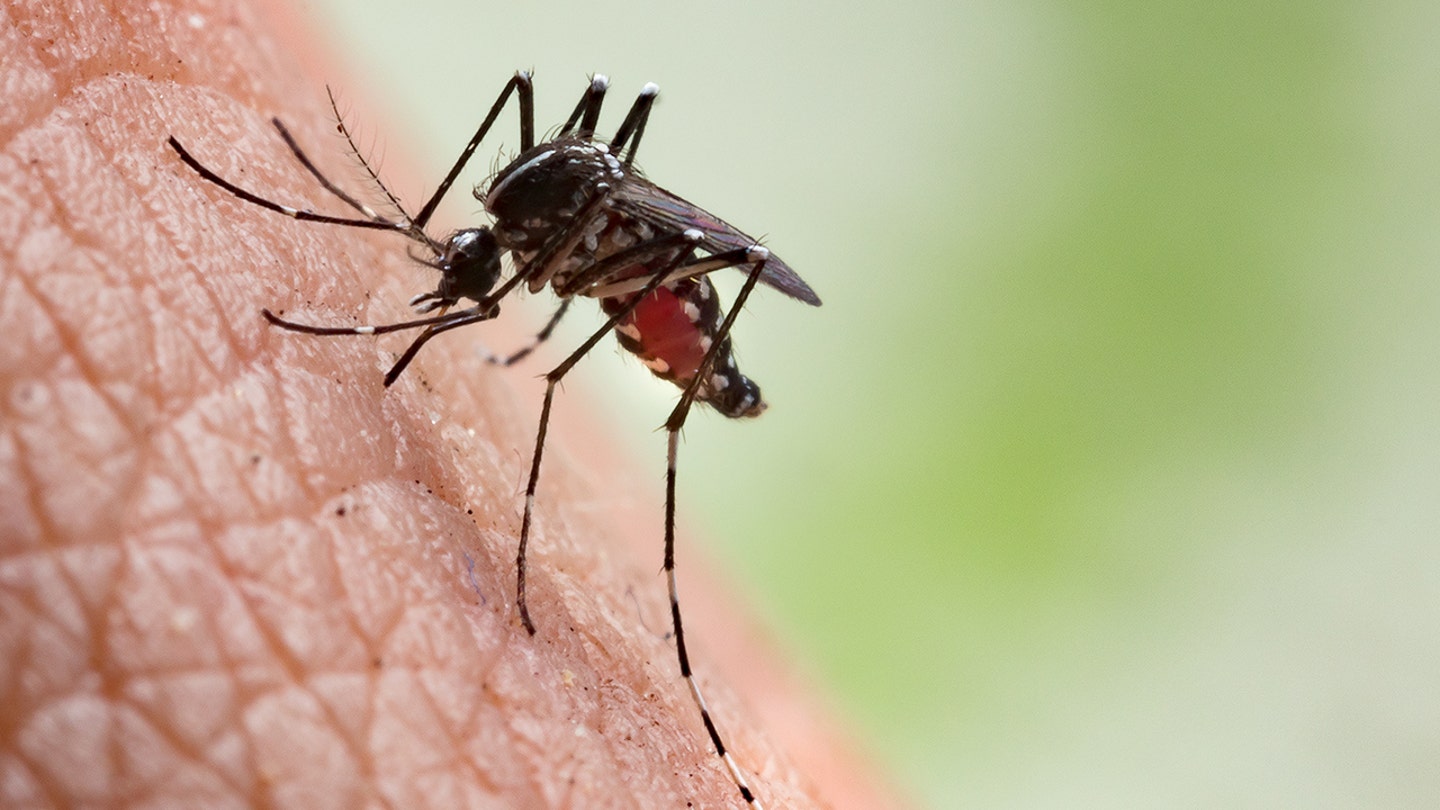NEWYou now have the option to listen to articles from Fox News!
An outbreak of a virus transmitted by mosquitoes has occurred in China, raising concerns about its global impact.
The U.S. Centers for Disease Control and Prevention (CDC) has issued a Level 2 alert due to an outbreak of chikungunya virus in the Guangdong Province, where over 7,000 cases have been reported as of Wednesday, according to the AP.
The virus is spread when a mosquito bites an infected person and then bites another person.
Efforts are being made to control the mosquitoes that are spreading the virus, including the use of nets, insecticide, and drones.
Chikungunya cases have also been on the rise in Europe, as reported by the European Centre for Disease Prevention and Control (ECDC).
A sanitation worker sprays insecticide to prevent the spread of the Chikungunya virus on Aug. 3, 2025, in Dongguan, in the Guangdong Province of China. (VCG via Getty Images)
Since the beginning of 2025, there have been around 240,000 cases of CHIKVD and 90 deaths reported in 16 countries and territories across the Americas, Africa, Asia, and Europe.
No locally acquired cases of chikungunya have been confirmed in the U.S. since 2019, based on CDC data.
Symptoms and risks
Common symptoms of chikungunya include high fever and joint pain, typically appearing three to seven days after being bitten by an infected mosquito.

The virus spreads when a mosquito feeds on an infected person and then bites another person. (iStock)
Other symptoms may include headache, joint swelling, rash, and muscle pain, as stated by the CDC.
While symptoms usually resolve within a week, some individuals may experience severe joint pain for months or even years after infection.
“Occasionally, neurological complications arise, including encephalitis (swelling of the brain).”
“Occasionally, neurological complications arise, including encephalitis (swelling of the brain),” warned Dr. Marc Siegel, Fox News senior medical analyst.
Individuals at highest risk of severe illness include adults aged 65 and older, newborns, and people with underlying health conditions such as heart disease or diabetes.
Chikungunya is rarely fatal.
Stopping the spread
The chikungunya virus is not transmitted among humans and cannot be spread through physical contact, coughing, or sneezing, according to the CDC.
While cases of chikungunya have been reported in Southeast Asia, the significant increase in Southern China is concerning, noted Siegel.

Common symptoms of chikungunya include high fever and joint pain. (iStock)
“China’s containment strategy is very strict and unlikely to be effective,” he told Fox News Digital.
The country has announced plans to use drones to locate standing water where mosquitoes breed, as well as to spray insect repellents in parks, public areas, and on individuals.
“Officials are fining or arresting individuals with stagnant water, and quarantining sick individuals in hospitals under mosquito netting,” Siegel said, citing a report from The New York Times.
Another approach involves using elephant mosquitoes, which produce larvae that feed on the Aedes mosquitoes that transmit the virus, added Siegel.
“However, these measures are unlikely to be successful due to the close proximity of people and the ease with which these mosquitoes breed,” he said.
Prevention and treatment
Currently, there are no specific medications to treat chikungunya virus.
The best way to prevent the virus is by avoiding mosquito bites.

A staff member carries out disinfection work at a hospital amid an outbreak of chikungunya on July 23, 2025, in Foshan, Guangdong Province of China. (Getty Images)
Recommended prevention strategies include using EPA-registered insect repellent, wearing long sleeves and pants, keeping windows screened, using mosquito netting when sleeping outdoors, and treating clothing and gear with 0.5% permethrin.
Two vaccines are available in the U.S. — a live-attenuated vaccine (IXCHIQ) and a virus-like particle vaccine (VIMKUNYA), which may be recommended for travelers at higher risk visiting areas where the virus is prevalent.
Travelers should consult with a healthcare provider to determine if they should receive the vaccine.
Melissa Rudy is senior health editor and a member of the lifestyle team at Fox News Digital. Story tips can be sent to melissa.rudy@fox.com.





